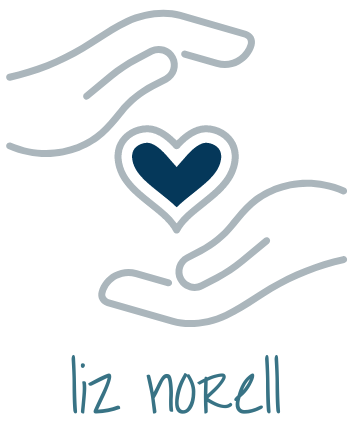I recently blogged about a variety of things clustered around emotion at work — psychological safety, leadership in challenging times, etc. — and did so in a vague-ish way, because I’m painfully aware that I’m not in a position to speak freely about some of the trickier aspects of my work life. You can deduce from that what you will, but suffice it to say that I continue to struggle with identifying the line between having the freedom to share my thoughts and experiences and remaining professional about how I discuss my own work-life struggles outside of the organization that employs me.
So I’m probably going to screw this up, and I just want to let it be known in advance that my missteps are not intentional. I’m trying to Do The Right Thing whilst also acknowledging that putting thoughts into words is the best way I know how to process complex experiences/thoughts/feeling.
Let me begin with this Instacomic from @lizandmollie, who wrote the book on which I based my last blog post, No Hard Feelings. It captures kind of where I’m at mentally right now:
I am a get-things-done person.
My parents were and are extremely hard-working people who raised me from birth to be the sort of person who just jumps in and gets something done. I’ve been this way my entire life, then: When something needs doing, I’d vastly prefer to just do it, even if I do so imperfectly, than to sit around and talk about it for days or weeks or months. I acknowledge freely that my impulse to act first and evaluate later means that I don’t always anticipate every possible downstream impact; I know that I don’t always follow process perfectly; I am well aware that the person who Gets Things Done can be perceived as any number of things I am not (e.g., seeking glory, power grabbing, ambitious ladder climber, etc.) and at least one thing that I confess I am, even though I wish I weren’t (i.e., a bit of a control freak).
In my 43 years, I’ve done a looooooot of inner work. My Enneagram 2-ness means I tend to hustle for appreciation and love; at least some of my getting-things-done is probably a manifestation of seeking emotional comfort through the appreciation of others, and I see those tendencies with as much awareness as I can muster. I developed my “Three-Point Test to Yes” to help guide my impulses around jumping into every project around me… and while I don’t still consciously think about these three questions, I have internalized them into my own decision calculus.
When I list out the things I’m doing now — and yes, there are a lot of things! — I can say that with perhaps one or two exceptions, every single one of them passes the three-point test. I’m spending my days and nights on actions that impact my world and create community, and I’m (mostly) doing things that others haven’t or wouldn’t, at least not at this stage and not in this way. Hopefully, ideally, I’m creating things that others will take over — things like the podcast I helped launch at work last year, which I’m working to create infrastructure to sustain that project beyond my day-to-day involvement.
Here’s the thing, though: As Glennon Doyle writes in Love Warrior, to be a person with empathy and compassion, to be a person who lives from a passion-motivated, heart-centered orientation, it’s not always going to be rainbows and unicorns.
I’m not a mess but a deeply feeling person in a messy world. I explain that now, when someone asks me why I cry so often, I say, “For the same reason I laugh so often — because I’m paying attention.” I tell them that we can choose to be perfect and admired or to be real and loved. We must decide.
— Glennon Doyle Melton, Love Warrior

Honestly, I wouldn’t want to live my life differently. I love that I — daily — experience emotional highs, genuine satisfaction with my life, and a very tangible sense of purpose. To be completely honest, most days I am content with the knowledge that if I were hit by a semi-truck tomorrow and vanished from this Earth in an instant, I wouldn’t have a laundry list of regrets. My life is good. It is very nearly exactly how I would design it to be. I am exceedingly lucky and privileged to live a life I love. I am happy 85-90 percent of the time, and not just sort of mildly content and going about my day, but mindfully present and aware of how fortunate I am. My gratitude practice is off the charts. I’ve done the work.
But living at that level of presence and up-to-my-eyeballs happiness means that I also feel the lows, and I feel them deeply, and it’s rattling and challenging and sometimes a bit crushing. Mama Brene Brown says, “We cannot selectively numb emotions; when we numb the painful emotions, we also numb the positive ones.” I choose to feel them all, because feeling is how we know we’re alive.

My work is fulfilling and challenging and wonderful, but that doesn’t mean it’s easy or always fun. My empathy, my emotions, and my get-it-done tendencies conspire to make missteps both inevitable and exceedingly challenging. I’ve always had the privilege of working with and for people who, on balance, were willing to forgive the missteps because the positive things I bring to my work outweighed them. And my hope — my desperate hope — is that somehow, I can continue to live in that world of grace and empathy and kindness and psychological safety for the rest of my working life (which, to be clear, will be the rest of my life, to the extent of my ability to make it so).
I return to the Instacomic that started this blog post and the plea, sent out generally to all who are in a position to influence the mental and emotional well-being of those they work with:
Be kind to one another.
Assume good intentions.
Don’t let the perfect be the enemy of the good enough.
Do the most good.
Protect the feelings of the most vulnerable.
Lead with love.
Give grace.
Forgive.
Mean it.
See the good in one another.
Ask questions before assuming intention.
Do the necessary things, even if imperfectly.
Get curious.
Be generous.
Love.
Love.
Love.

